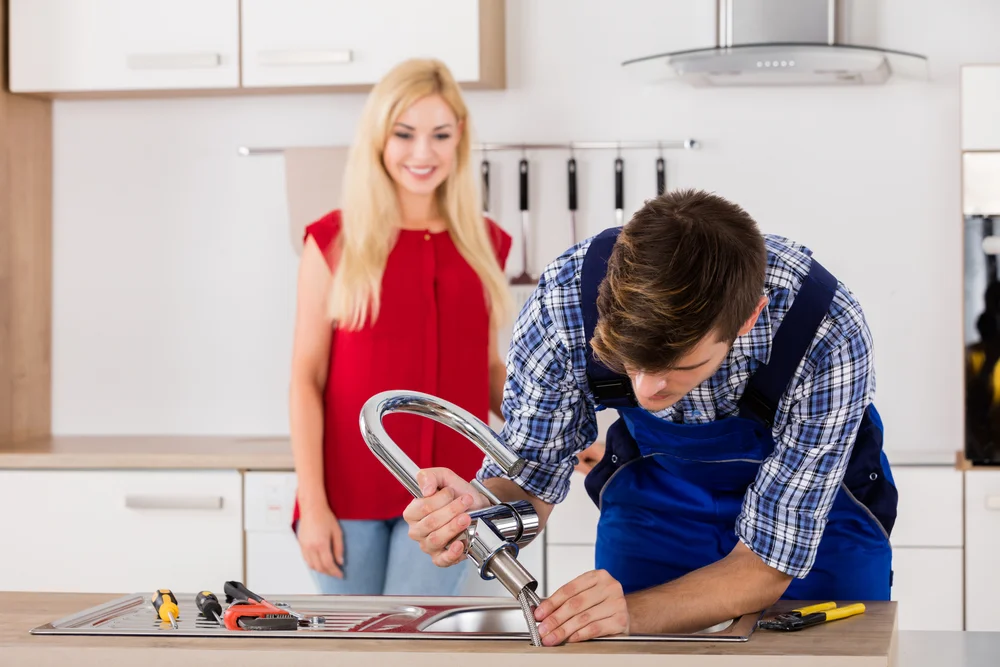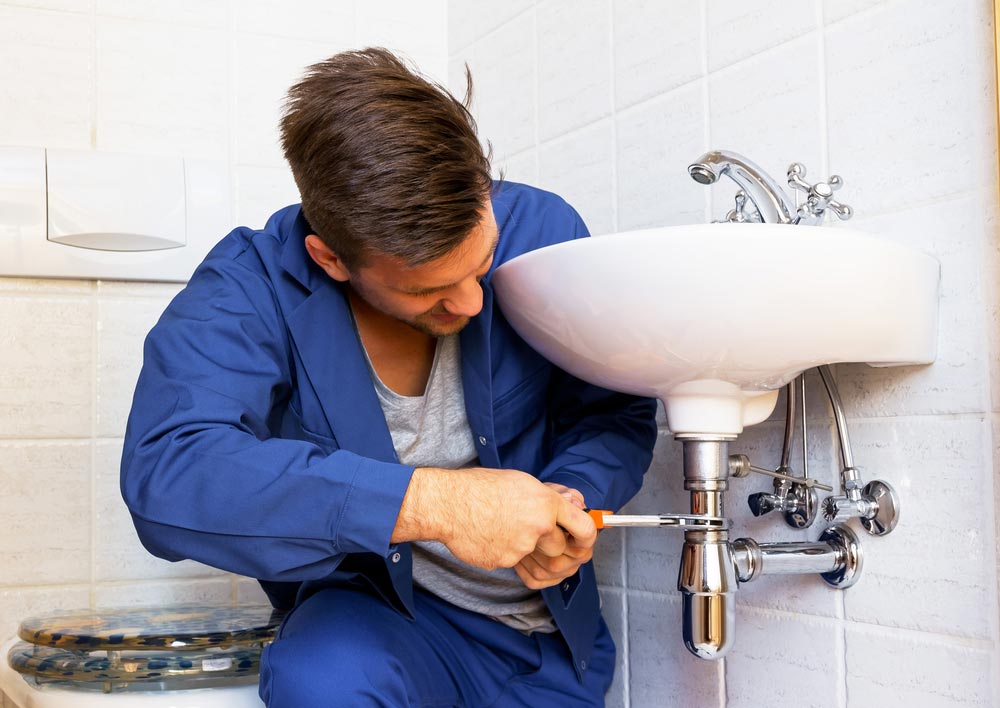Immediate Fixes for Plumbing Emergencies: Steps to Take Until Help Arrives
Immediate Fixes for Plumbing Emergencies: Steps to Take Until Help Arrives
Blog Article
This great article underneath involving Plumbing Emergencies: Tips on What To Do Before is highly intriguing. Read it for yourself and figure out what you think about it.

Plumbing emergencies can strike at any moment, causing anxiety and possible damages to your home. Whether it's a ruptured pipeline, a clogged up drainpipe, or a dripping tap, knowing just how to take care of the scenario up until a specialist plumber shows up can conserve you from further difficulties. This article offers vital emergency pipes ideas to aid you reduce damage and gain back control during a plumbing crisis.
Shut off the Water Supply
The primary step in any plumbing emergency is to shut down the water. For local problems, such as a leaking faucet or commode, switch off the shutoff near the fixture. When it comes to a significant leak or burst pipe, find your home's primary water shut-off shutoff and turn it off promptly. Recognizing the area of these shutoffs beforehand can conserve valuable time during an emergency situation.
Address Small Leakages with Temporary Repairs
Small leaks can swiftly end up being significant troubles if left untreated. Utilize these temporary solutions up until specialist aid arrives:
While these fixes aren't long-term, they can assist decrease water loss and damages.
Unclog Drains Safely
A blocked drain can be a discouraging and unpleasant problem. Here's exactly how to tackle it:
If these approaches don't function, avoid making use of excessive force, as it might worsen the clog.
Handle Overflowing Toilets
An overruning bathroom can cause immediate turmoil. Right here's what you ought to do:
Turn off Your Hot Water Heater
In specific emergency situations, such as a burst pipe, it's wise to turn off your hot water heater. This stops getting too hot or damage to the system when water quits streaming. Switch off the power supply to the water heater (electrical or gas) and allow it cool off to stay clear of potential dangers.
Temporarily Stop a Burst Pipeline
A burst pipe can bring about significant water damages in mins. To mitigate the problem:
Call an expert plumber right away to resolve the problem permanently.
Manage Frozen Piping Meticulously
In colder climates, frozen pipes are a typical emergency. If you think a frozen pipe:
Avoid Further Damages
Taking quick activity to lessen damage can conserve you time and money in the long run. Right here's how:
. Have an Emergency Pipes Package
Prepare a fundamental pipes emergency kit to deal with small issues properly. Your kit must include:
Having these devices on hand can make a considerable distinction in your ability to handle emergency situations.
Know When to Call an Expert.
While quick fixes can aid temporarily, specific pipes concerns require instant specialist interest. Call a plumber if:.
Immediately speaking to a specialist makes certain the concern is settled appropriately and protects against more difficulties.
Verdict.
Pipes emergency situations can be overwhelming, yet with the appropriate expertise and devices, you can handle the circumstance efficiently until help arrives. By switching off the water, resolving little leaks, and utilizing short-term solutions, you can reduce damage and maintain your home safe. Remember, these tips are short-lived options; always get in touch with an accredited plumber to take care of the source of the trouble. Prep work and quick reasoning are your ideal allies in any type of pipes emergency.
8 Helpful Tips for Managing Plumbing Emergencies at Home
If your plumbing system hasn’t failed once, wait for it because almost everyone has a story to tell. Sometimes, it could be simple emergencies such as a leaking pipe, a blocked cistern, or even a big burst pipe. In situations like this, you need to have some handy tips to save you some money and from possible damages.
Take care of minor issues early.
Sometimes, you could have avoided an emergency by taking proactive measures while it was still early. Some major plumbing emergencies can be a result of an ignored minor issue. We recommend that you have items like plumbing tapes and other related items. A plumbing tape can allow you to manage minor leaks before the plumber arrives.
Cut off the water supply.
This tip is essential in almost any type of leakage problem. For problems like minor leakages in the toilet or kitchen, turn off the supply that takes water to the affected pipes. If the leakage is a major pipe, you must shut off the supply valve to the entire building. This will help you avoid flooding your home and neighbors if you share a flat.
Know your plumbing system
Folks typically move into a new apartment without understanding the water supply around the building. This can prove disastrous if a water emergency arises and the plumber is far away. The previous tip will prove useless if you don’t practice this one. More importantly, know where your water shut-off valve is located – you’ll need that knowledge to prevent potential home floods.
Have some common handy tools
There are lots of plumbing emergencies that you can handle without hiring a plumber. That’s why you must keep some tools available always. Some tools that you can use to fix simple plumbing emergencies easily include plumbing tapes, screwdrivers, thread seal tapes, plungers, pliers, tape measures, and rubber gloves.
Insulate your pipes from cold
You’ll save yourself from many plumbing expenses if you protect your water pipes from the cold. This is because of the harmful effects that cold weather can have on your pipes. During winter, your pipes can burst from being overly expected to freezing temperatures. So, make sure insulators are there to keep the pipes working correctly.
Avoid practices that will clog your toilet.
Many people indulge in practices that can damage the plumbing system of the entire building. One of these is when they use their toilet to dispose-off garbage. They flush all kinds of things, such as paper towels, bandages, hairs, female sanitary products, etc., down the toilet. This will block your toilet in the long run, incurring unnecessary expenditures. Dump such waste in the trash instead.
Check your dials regularly.
Sometimes, there could be leakages in your home without noticing them in time. So, constantly monitor your water meter dial. If the dial is reading when there is nobody using water, this is an indicator that there is leaking. Check for leaks immediately. Call a plumber as soon as possible if you can’t find any.
https://www.constructionplacements.com/8-helpful-tips-for-managing-plumbing-emergencies-at-home/

Hopefully you enjoyed our topic on Expert Tips for Managing a Plumbing Emergency Until Help Arrives. Thank you so much for finding the time to read through our content. If you please pause to distribute this entry if you enjoyed reading it. We love reading our article about Expert Tips for Emergency Plumbing Repairs.
Appointment Report this page